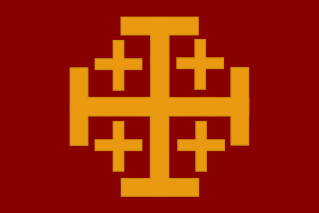Constantinopolis wrote:In fact, I hope no one will mind if I repost my explanation of Catholic-Orthodox differences in full, given the fact that it was originally posted in the previous incarnation of the Christian thread after all... So, without further ado:
--- Const's list of doctrinal differences between Catholic and Orthodox Christians ---
First of all, I have to mention that this list is unofficial (obviously), and written from an Orthodox point of view. Catholics tend to claim that the theological differences are extremely small, or maybe even just a matter of misunderstanding (because, in general, the Catholic view is that the two Churches could reunite tomorrow if only the Orthodox weren't so nitpicky and stuborn). The Orthodox claim that the theological differences are more significant, and our view is that they represent a major barrier to any kind of reunification at the moment. But at the same time, obviously, we recognize that we have far more in common with the Catholics than with any Protestant group.
And now for the list itself. The differences are as follows:
1. The Filioque - Catholics say that the Holy Spirit proceeds from the Father and the Son. Orthodox say that the Holy Spirit proceeds from the Father alone, although we also accept the phrase "from the Father through the Son". The original Creed stated that the Holy Spirit proceeds from the Father, without mentioning the Son, and the Orthodox strictly adhere to the Creed as originally written. The phrase "and the Son" (which in Latin is one word: "filioque") was added in later centuries in the West. Catholics argue that this phrase makes no difference one way or the other, and that the Orthodox are just splitting hairs. The Orthodox argue that it makes a big difference, and that you can't just change the Creed willy-nilly like that.
2. Papal primacy - Catholics believe that one bishop (the bishop of Rome, also known as the Pope) is the head of the Church and has universal jurisdiction over other bishops and over all Christians. They also ascribe certain other unique roles to the Pope which no other bishop has. The Orthodox have no such "super-bishop". All bishops are equal. We do have Patriarchs, but they're just regular bishops who happen to be in charge of administrative matters over a certain area (i.e. what gets built and where, which priest gets appointed to which parish, and so on). They don't have any power to decide what Orthodox Christians believe.
3. Development of doctrine - the Catholic Church considers it acceptable to declare new doctrines which were not believed by Catholics in previous times. The Orthodox Church considers this idea to be insulting to God, since it implies that Jesus Christ did not tell us everything we need to know for salvation, but left it up to us to discover new requirements later. In the Orthodox view, while it's certainly possible to develop new opinions (= personal views about non-essential topics, which are not mandatory for all Christians), it is not possible to discover new doctrines (= beliefs that are mandatory for Christians). In other words, you can't impose new rules that weren't around before. All that is essential for salvation was known by the Church from the beginning. The Church may clarify doctrines or rephrase them in words that modern people can understand, but it cannot declare that something which was considered false in the past is to be considered true in the future.
The Orthodox don't just take issue with the Pope having the power to decide new doctrines; we take issue with anyone having that power.
Technically speaking, the pope does not have the power to decide new doctrines; he has the power to define doctrines. Catholic dogma is just as unchanging as orthodox dogma.








 Well, the absolute best summary of the Orthodox understanding of redemption through Christ is the Paschal homily of St. John Chrysostom, which we read aloud every year on Pascha (Easter). It's brief, uplifting, and to the point:
Well, the absolute best summary of the Orthodox understanding of redemption through Christ is the Paschal homily of St. John Chrysostom, which we read aloud every year on Pascha (Easter). It's brief, uplifting, and to the point: